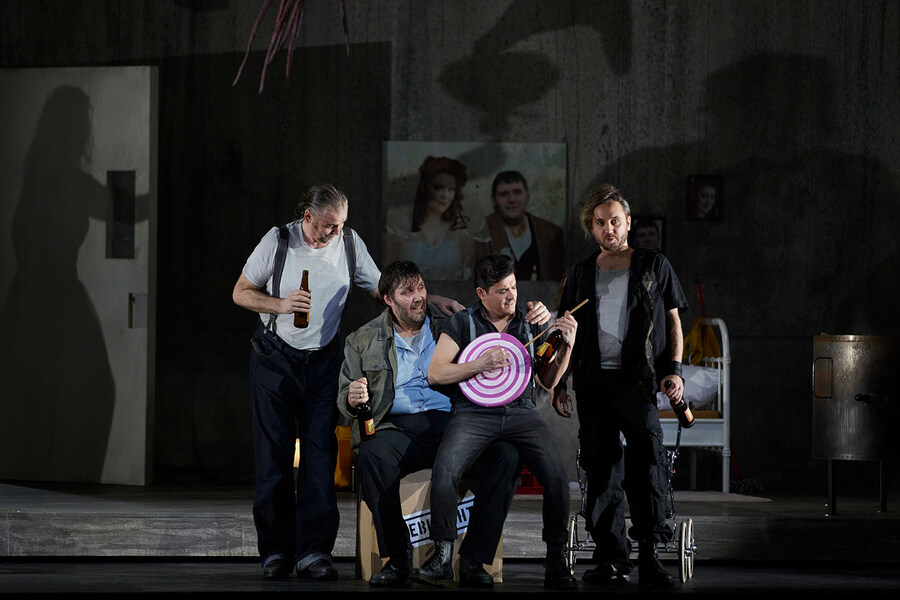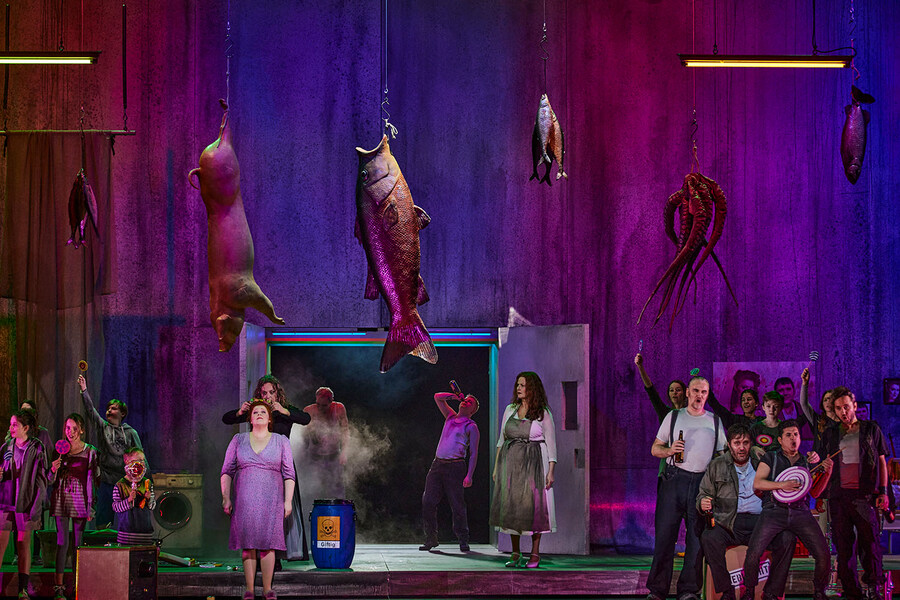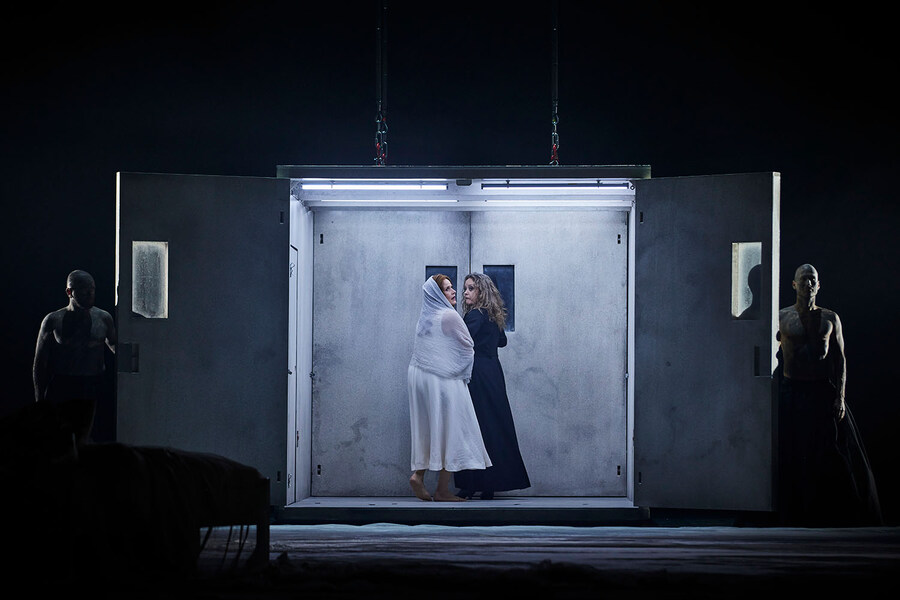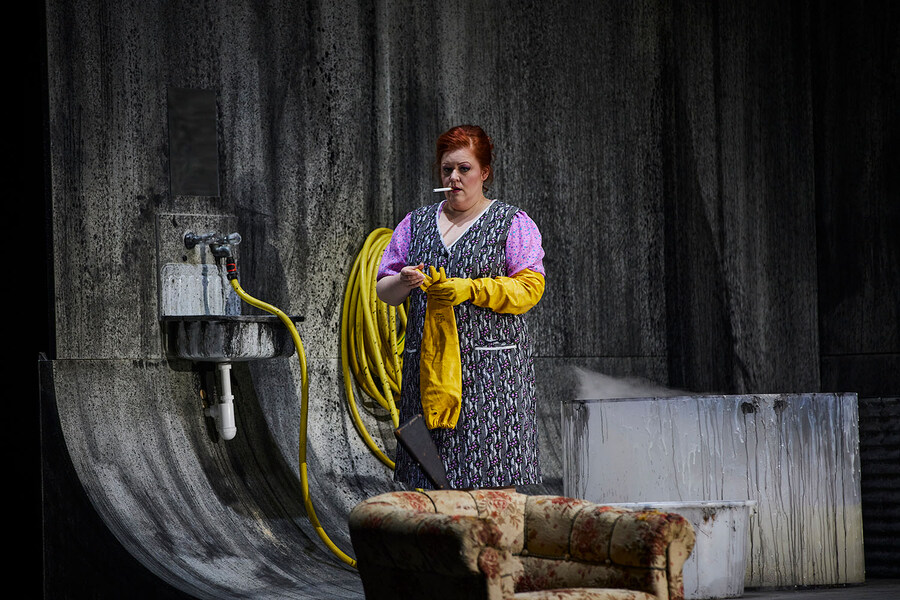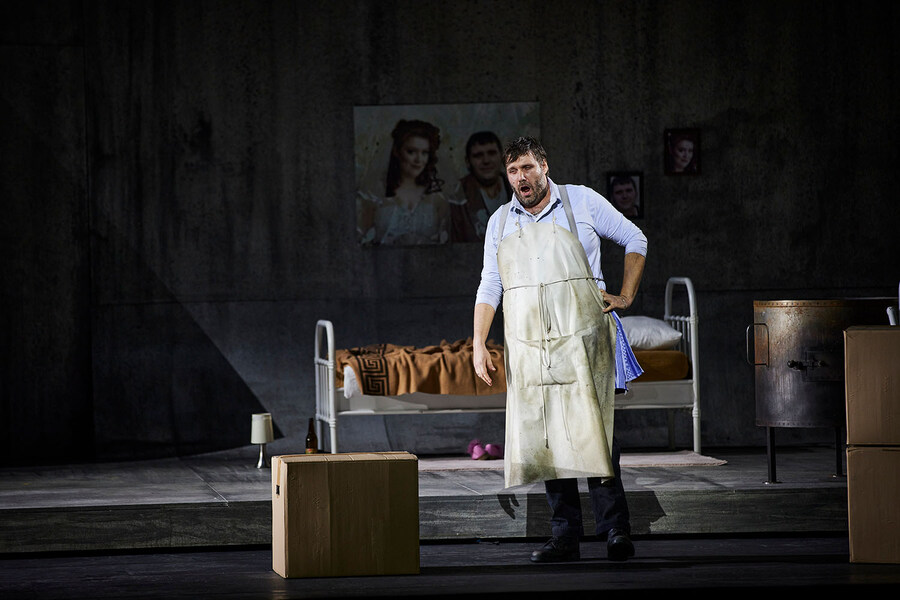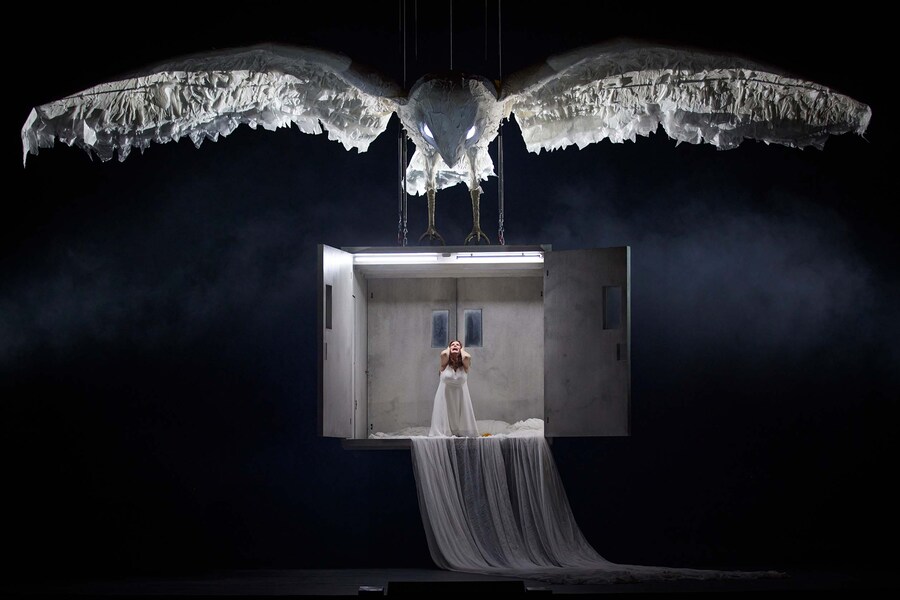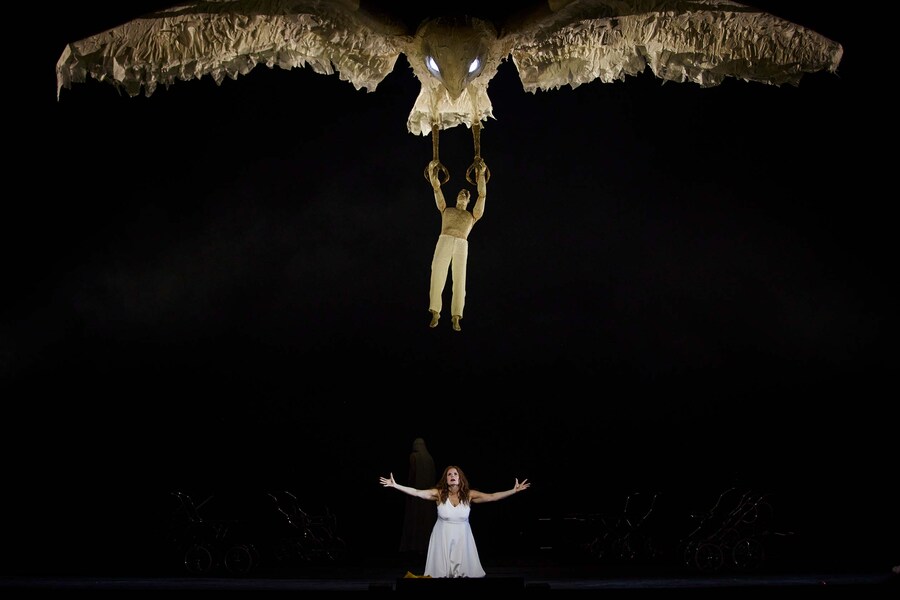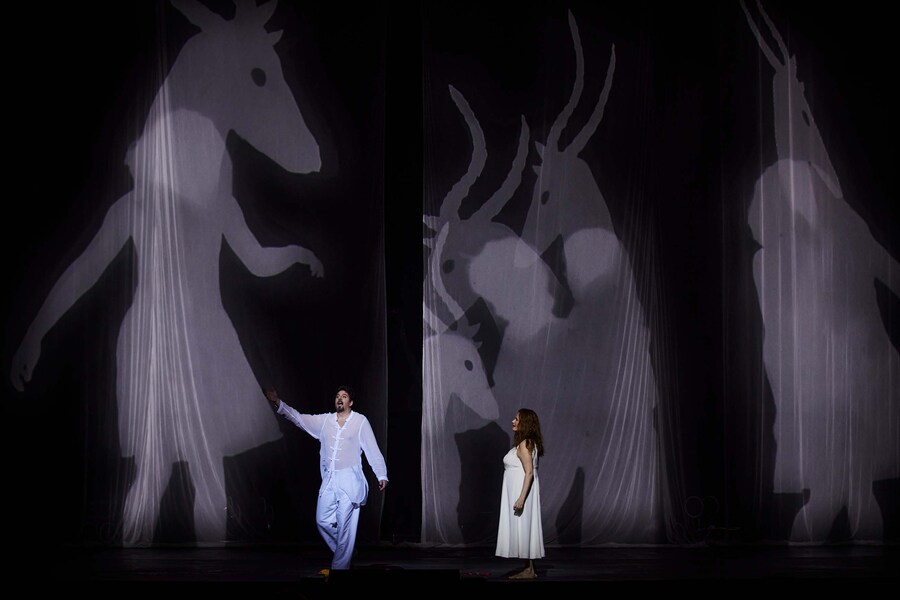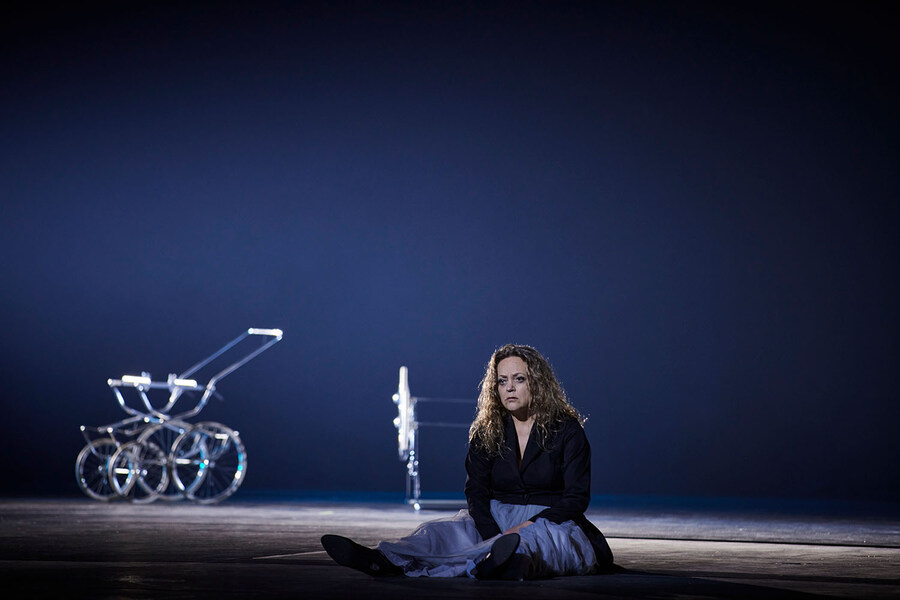Opera in three acts
Text by Hugo von Hofmannsthal
Performed in German with German and English supertitles
Premiere
23. March 2024,
No further performances in the current season.
Premiere cast
- Conductor Christian Thielemann
- Staging David Bösch
- Set Design Patrick Bannwart
- Costume Design Moana Stemberger
- Lighting Design Fabio Antoci
- Videodesign Patrick Bannwart, Falko Herold
- Choir André Kellinghaus
- Children Choir Claudia Sebastian-Bertsch, Kinderchor der Semperoper Dresden
- Dramaturgy Johann Casimir Eule
- Der Kaiser Eric Cutler
- Die Kaiserin Camilla Nylund
- Die Amme Evelyn Herlitzius
- Der Geisterbote Andreas Bauer Kanabas
- Ein Hüter der Schwelle des Tempels Nikola Hillebrand
- Erscheinung eines Jünglings Martin Mitterrutzner
- Die Stimme des Falken Lea-ann Dunbar
- Eine Stimme von oben Christa Mayer
- Barak Oleksandr Pushniak
- Baraks Frau Miina-Liisa Värelä
- Der Einäugige Rafael Fingerlos
- Der Einarmige Tilmann Rönnebeck
- Der Bucklige Tansel Akzeybek
Sächsischer Staatsopernchor Dresden
Kinderchor der Semperoper Dresden
Sächsische Staatskapelle Dresden
Kinderchor der Semperoper Dresden
Sächsische Staatskapelle Dresden
Explore
Making-of
The Woman without a Shadow – Making-of (4)
Sopranos Camilla Nylund and Evelyn Herlitzius shine as the Empress and the Nurse in The Woman without a Shadow under the musical direction of Christian Thielemann. In this making-of, they provide further exciting insights into Strauss' fairytale-like work.
Stücktrailer
The Woman without a Shadow
Inspired by oriental fairy tales and with an admiring glance to Mozart’s The Magic Flute, Richard Strauss and Hugo von Hofmannsthal created their fourth joint opera, Die Frau ohne Schatten (The Woman without a Shadow), in 1919. This massive work is as enigmatic as it is fascinating, rich in symbolism and with a powerful score. Reflecting events at the time of its creation, in particular the devastating experiences of the First World War and the emerging insights of psychoanalysis, the libretto poses the vital question of how, in the face of millions of deaths and emotional paralysis, we can once again find love and our sense of humanity.
Making-of
»The Woman without a Shadow« – Making-of (3)
With its five main roles and large orchestral cast, the performance of Richard Strauss' seventh opera presents the performers with special artistic challenges. The staging of the wondrous opera plot is just as demanding as the musical interpretation of the work. Find out more in our making-of!
Making-of
»The Woman without a Shadow« – Making-of (2)
Richard Strauss' masterpiece The Woman without a Shadow once again brings together an ensemble of outstanding singers under the musical direction of Christian Thielemann. Camilla Nylund and Evelyn Herlitzius already appeared together on the stages of the Vienna State Opera as the Kaiserin and the Nurse under his baton in 2019. Now the two sopranos are back on our opera stage in the same roles for director David Bösch's new production. Our making-of reveals more.
Making-of
»The Woman without a Shadow« – Making-of (1)
After Korngold's Die tote Stadt (2017) and Verdi's Nabucco (2019), the new production of Strauss' The Woman without a Shadow is the third production that German theatre and opera director David Bösch has brought to the Semperoper stage together with his stage designer Patrick Bannwart. In our making-of, you can find out how Bannwart translates this wondrous opera story into images.
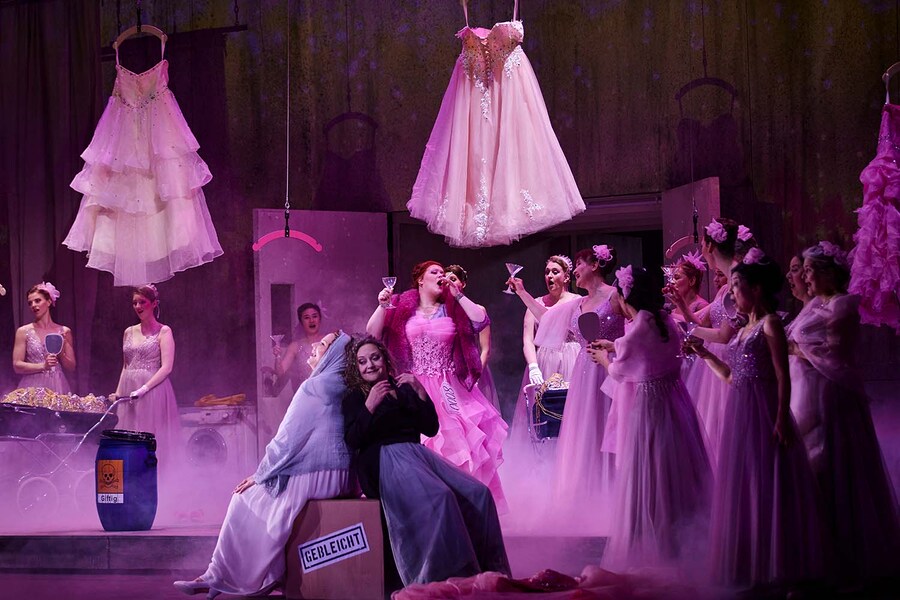
Gallery
